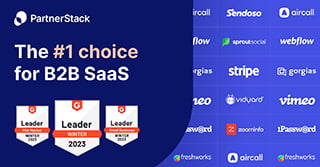Technology
Where Emerging Tech Startups Are Thriving

The tech startup industry is experiencing a boom as businesses recognize the value of investing in emerging technologies. Startups in various sectors are thriving, particularly those focused on Web 3.0 technologies. If you’re considering starting a tech business, exploring these areas could lead to success and a competitive advantage.
Startup Success
The success of a startup is influenced by several factors, such as market demand, competition, execution, and timing. Before embarking on a business venture, conducting comprehensive market research and validating your idea is essential. It’s what our list of successful startups did in the following areas.
AI (Artificial Intelligence)
AI-powered software and platforms hold significant potential for various industries. Startups can develop solutions tailored to healthcare, finance, customer service, or manufacturing sectors.
Using automation, predictive analytics, natural language processing, or computer vision, AI-driven solutions can transform processes and drive efficiency. For example, AI can aid in diagnosis, personalized treatment plans, and drug discovery in healthcare.
AI can assist in fraud detection, risk assessment, and algorithmic trading in finance. Customer service can benefit from AI chatbots and virtual assistants, while manufacturing can optimize operations through AI-powered quality control and predictive maintenance.
Examples
The following examples are just a few of many successful startups in AI tech solutions.
OpenAI
OpenAI, the organization behind the development of GPT-3, is focused on advancing artificial general intelligence.
Cerebras Systems
Cerebras develops AI-focused hardware, including the largest computer chip designed specifically for deep learning.
DataRobot
DataRobot offers a platform that automates the end-to-end process of building and deploying machine learning models.
UiPath
UiPath is an automation software company that provides a platform for robotic process automation (RPA) and AI-powered workflows.
By customizing AI for industry-specific challenges, startups can revolutionize these sectors, improve outcomes, and drive business growth.
Blockchain Applications
Blockchain technology offers immense potential beyond cryptocurrencies, and startups can focus on developing solutions for various industries.
One area is supply chain management, where blockchain can enhance transparency, traceability, and accountability by creating an immutable record of transactions and product movement.
Secure transactions can be facilitated by leveraging blockchain’s decentralized and tamper-proof nature, enabling secure and efficient peer-to-peer transactions across industries, including:
- Banking
- Real Estate
- Intellectual Property
- Supply Chain Management
- Government
Blockchain-based identity verification systems can provide secure, privacy-preserving digital identities, reducing theft and fraud risks.
Furthermore, decentralized applications (DApps) built on blockchain can revolutionize industries like healthcare, voting systems, gaming, and decentralized finance, fostering transparency, decentralization, and user empowerment.
Examples
Chainlink
Chainlink aims to connect smart contracts on the blockchain with real-world data, enabling decentralized applications to access reliable information.
Kryken
Kraken is a popular cryptocurrency exchange and platform for buying, selling, and storing various cryptocurrencies.
Ripple
Ripple offers blockchain-based solutions for secure, instant, and low-cost international money transfers.
ConsenSys
ConsenSys is a blockchain software technology company that builds decentralized applications and infrastructure for the Ethereum ecosystem.
eCommerce Optimization
eCommerce continues to thrive, and startups can tap into this market with apps and tools that optimize the website and online shopping and sales conversion experience.
By developing tools and services that enhance conversion rates, user experience, and personalized recommendations, startups can help businesses maximize their online sales potential. For example, companies in industries like real estate sales that need contracts signed use digital signature technology, including a signature design tool, to speed up sales completion.
For marketers, leveraging machine learning algorithms and data analytics can give businesses valuable insights into customer behavior, preferences, and purchasing patterns.
Chatbots can be implemented to provide real-time customer support, answer queries, and guide customers through their buying journey.
By streamlining and personalizing the e-commerce experience, startups can help businesses attract and retain customers, increasing revenue and growth in the online marketplace.
Cybersecurity Solutions
The demand for innovative cybersecurity solutions is increasing as cyber threats continue to rise. Startups can focus on developing software, tools, or platforms that cater to specific security needs.
Data protection solutions can encompass encryption, secure storage, and access controls to safeguard sensitive information. Network security solutions can involve intrusion detection and prevention systems, firewall technologies, and secure remote access.
Vulnerability assessment tools can help identify and address network, application, or system security weaknesses.
Additionally, startups can explore emerging areas such as cloud security, IoT security, or AI-powered threat detection to stay ahead of evolving cyber threats.
By providing effective cybersecurity solutions, startups can help businesses and individuals protect their digital assets and ensure a safer digital environment.
Examples
CrowdStrike
CrowdStrike provides cloud-based endpoint protection and threat intelligence solutions to prevent and detect cyberattacks.
Darktrace
Darktrace utilizes AI algorithms to provide real-time cybersecurity threat detection and response across a network.
Palo Alto Networks
Palo Alto Networks offers a range of cybersecurity products and services, including firewalls, advanced threat prevention, and cloud security solutions.
Fortinet
Fortinet provides network security appliances, unified threat management, and cybersecurity solutions for enterprises, service providers, and government entities.
Sustainability and CleanTech
Startups can be crucial in addressing the pressing need for sustainable and environmentally friendly solutions.
These startups can drive positive change by developing technologies focused on renewable energy, waste management, water conservation, and carbon footprint reduction.
Renewable energy solutions can include innovations in solar, wind, hydro, or geothermal power generation, making clean energy more accessible and affordable.
Waste management technologies can revolve around recycling, waste-to-energy conversion, or smart waste management systems. Water conservation solutions can involve water monitoring systems, efficient irrigation techniques, or water purification technologies.
Carbon footprint reduction technologies can range from carbon capture and storage to carbon offset platforms and sustainable transportation solutions.
By prioritizing sustainability, startups can contribute to a greener future and promote responsible environmental stewardship.
Examples
Tesla
Tesla is an electric vehicle and clean energy company that designs and manufactures electric cars, solar energy products, and energy storage solutions.
Enphase Energy
Enphase Energy develops and manufactures advanced solar micro-inverters and energy management systems for residential and commercial applications.
Opower
Opower provides cloud-based software solutions to utility companies for improving energy efficiency and engaging with customers to reduce energy consumption.
Carbon Clean Solutions
Carbon Clean Solutions focuses on carbon capture, utilization, and storage technologies to reduce greenhouse gas emissions from industrial processes.
Healthtech and Telemedicine
The healthcare industry presents abundant opportunities for technology-driven solutions that enhance patient care and streamline processes.
Startups can focus on developing innovative platforms for remote patient monitoring, telemedicine services, and digital health records.
Additionally, wearable devices with advanced sensors can track health metrics, enabling individuals to proactively manage their well-being.
By using these emerging technologies like artificial intelligence, machine learning, and the Internet of Things (IoT), healthcare startups can revolutionize healthcare delivery, making it more accessible, efficient, and personalized.
These solutions can potentially improve patient outcomes, reduce healthcare costs, and empower individuals to take control of their health.
Examples
SonderMind
With a platform that matches individuals with therapists and manages administrative tasks, this startup is one to watch. SonderMind has grown 8200% in five years.
Clipboard Health
Clipboard Health is a recruitment platform that matches healthcare staff with job openings at healthcare facilities.
Final Thoughts
To thrive as an emerging tech startup, it is important to identify the areas or industries where other startups are finding success. By studying the performance of thriving startups, you can gain insights into where to focus your efforts and increase your chances of success in the competitive tech industry.
Research the market, identify gaps, and develop a unique value proposition for your startup.









